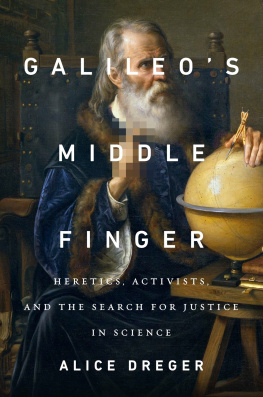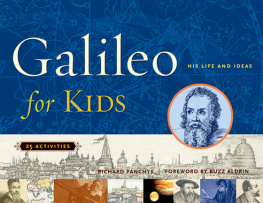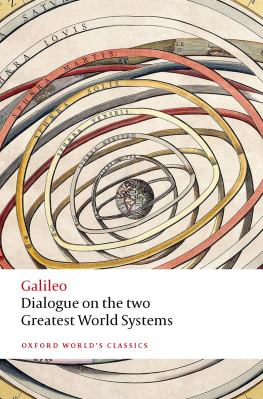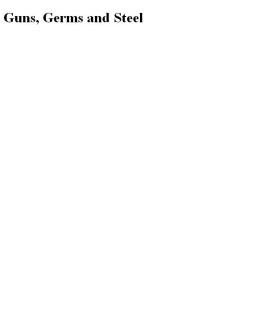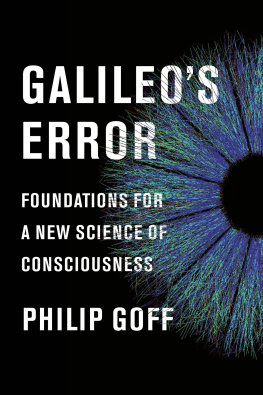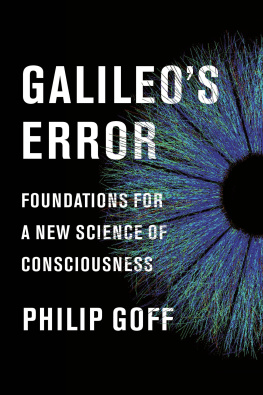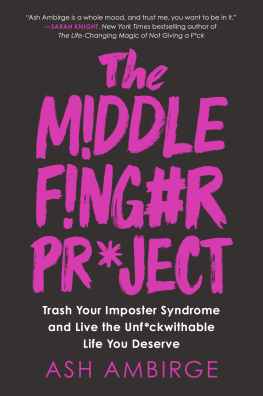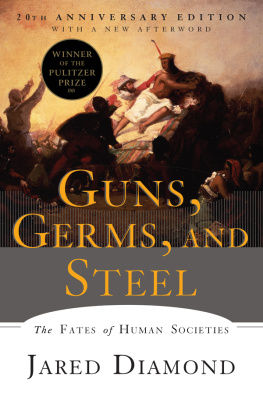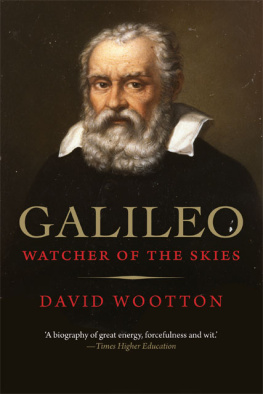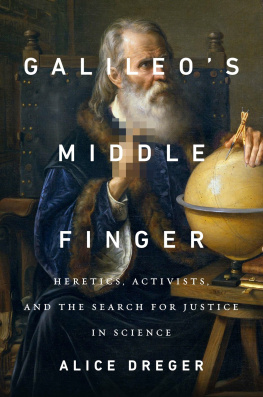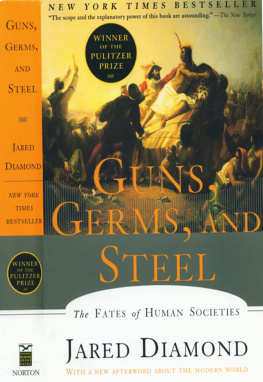Penguin supports copyright. Copyright fuels creativity, encourages diverse voices, promotes free speech, and creates a vibrant culture. Thank you for buying an authorized edition of this book and for complying with copyright laws by not reproducing, scanning, or distributing any part of it in any form without permission. You are supporting writers and allowing Penguin to continue to publish books for every reader.
Dreger, Alice Domurat, author.
Galileos middle finger: heretics, activists, and the search for justice in science / Alice Dreger.
Includes bibliographical references and index.
1. ScienceMoral and ethical aspects. 2. SciencePolitical aspects. 3. ScientistsProfessional ethics. 4. Heresy in science. I. Title.
FOR KEPLER, who saved his mother.
INTRODUCTION
THE TALISMAN
S OON ENOUGH, I will get to the death threats, the sex charges, the alleged genocides, the epidemics, the alien abductees, the antilesbian drug, the unethical ethicists, the fight with Martina Navratilova, and of course, Galileos middle finger. But first I have to tell you a little bit about how I got into this mess. And explain why I think we now have a very dangerous situation on our hands.
As an academic historian who typically hangs out with her own political kind, Im aware of the stereotype many liberals have about conservative Catholics. The former believe the latter dont thinkthat conservative religious people dont care about facts and rigorous inquiry. But my conservative Catholic parents were thinkers. Twice as often as my parents told their four children to go wash, they told us to go look something up. At our suburban tract house on Long Island in the 1970s, our parents shelved the Encyclopdia Britannica right next to the dinner table so we could easily reach for a volume to settle the frequent debates. The rotating stack of periodicals in our kitchen included not only religiously oriented newsletters, but also the New York Times and National Geographic. Our parents took us to science museums, woke us up for lunar eclipses, and pushed us to question our textbooks and even our teachers when they sounded wrong. Although our mother never mentioned that she had earned a degree in philosophy from Hunter College, she read to us aloud from Plato and Shakespeare, analyzing the texts as she read. Meanwhile, our father, a draftsman for one of the big Long Island defense contractors, loved learning in spite of having had only a high school education. We joked that he would someday be crushed under his books, most of them military histories of Poland, the homeland of both sides of our family. He got us microscopes and telescopes and talked seriously about the potential for alien life-forms. I vividly recall that, when one day we summoned him urgently to come see a giant UFO that had appeared in the sky, he was genuinely disappointed to discover he had bothered to grab his camera for the Goodyear blimp.
But besides being intellectuals and knowledge seekers, my parents were also industrial-strength Roman Catholics. They sought out Latin masses and avoided meat on Fridays long after Vatican II declared all that fuss unnecessary. They sent us to public school not only because the local public schools offered the best education around, but also because the local Catholic school struck them as dangerously liberal in its religious orientation. (Better to be among Protestants and Jews than roomfuls of squishy Catholics.) Their religious devotion manifested itself largely in pro-life activism. Even while their own children were still young and underfoot, my parents collected baby things to give to poor mothers, took in a young pregnant woman who had been thrown out by her parents, and became foster parents to a mixed-race baby of a single mother, ultimately adopting that child. As we were growing up, the basement of our house slowly filled with homemade placards we would carry when marching outside abortion clinics.
Although they were highly obedient to authority in their religious lives, in their political lives, my parents were rabble-rousers. My father ran for Congress on the Right-to-Life Party line, while my mother helped lead the local chapter of Feminists for Life. (In the 1970s, bra-burning pro-lifers were a real thing.) My mother especially embraced her American rights to speak, to assemble, to vote, and to protest, because she knew her life might well have turned out differently. Born in 1935 in Poland, she had somehow survived the Second World War with her extended family in their tiny farming village in an area subjected to repeated aerial bombings and ground-war skirmishes. Not long after the war ended, at the age of eleven, she had been suddenly transported with her brother and mother to America, where the three of them were reunited with her father. (Her father had had dual citizenship and had fought with the Americans.) On these shores, she found a land where you could, without fear, say and think what you wanted, worship and vote as you wanted, and openly object to what you found stupid or offensive. She let us know, as we were growing up, that she considered American democracy a true wonder, a tool to be used at every chance. The Bill of Rights seemed to her almost as sacred as the Bible. This view was implicitly and explicitly reinforced by the rare relatives who made it out of Soviet-controlled Poland and came to lodge with us.
My parents never seemed to feel a tension between these heavy strands that comprised their livesthe Old World and the New, the religious and the intellectual, the obedient and the activist. I suppose that to them it all seemed obviously interrelated. They had no trouble sending me to confession one day and renewing my subscription to Natural History magazine the next. But as I grew up, I felt the tension one surely must feel when being simultaneously taught the importance of a specific dogma and the importance of freedom from dogma.
I knew that some people abandoned their parents religion as a way of asserting their independence. But for me, losing my religion wasnt about rebellion against my parents; indeed, I felt quite forlorn at the idea of disappointing my family by admitting my atheism. Still, my parents religious faith seemed to me incommensurate with our deeply felt faith in Americaa faith in freedom of inquiry, in freedom of thought, in the will and right of the people to collectively discover truth and to make their own rules accordingly. And I loved America much more than I loved the Vatican, that place where celibate old men had the right to tell intelligent women what we should think and do. By the time I was in my late teens, while my sister was on her way to becoming a nun, I couldnt help but notice that the place I felt the hope of salvation wasnt church. It was the American Museum of Natural History, that great cathedral of evolution. As often as I could, I would take the train into New York City and lie under the giant blue whale in the great darkened hall of ocean life. Every time I lay therewaiting for the delicious moment when the whale started to move, from optical illusionscience struck me as the obvious and perhaps only way to remain perpetually free from blinding, oppressive dogma.

